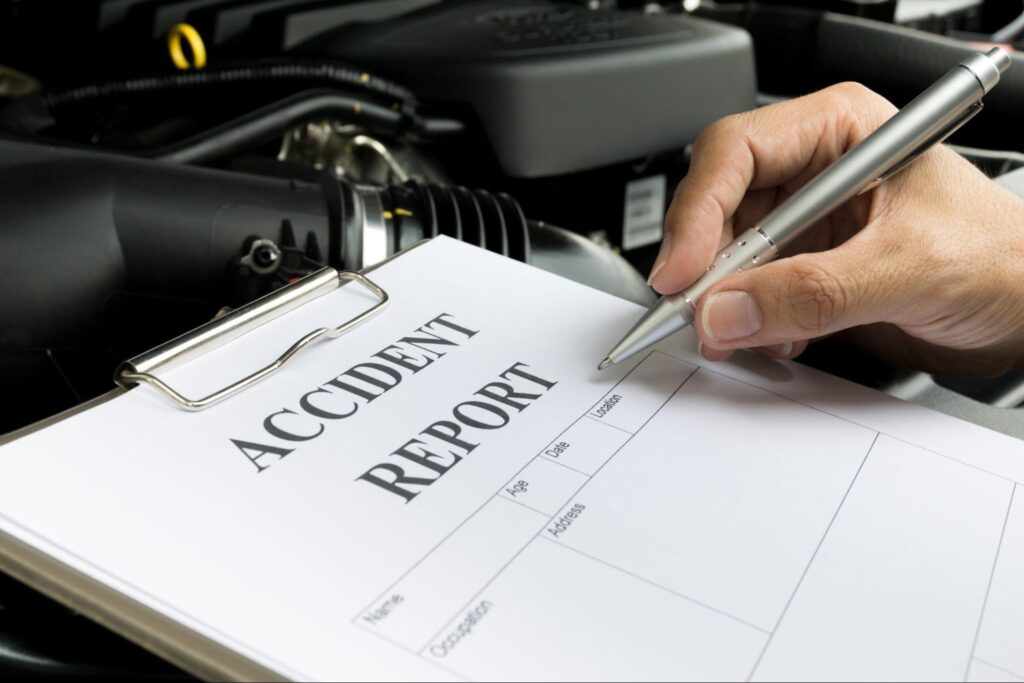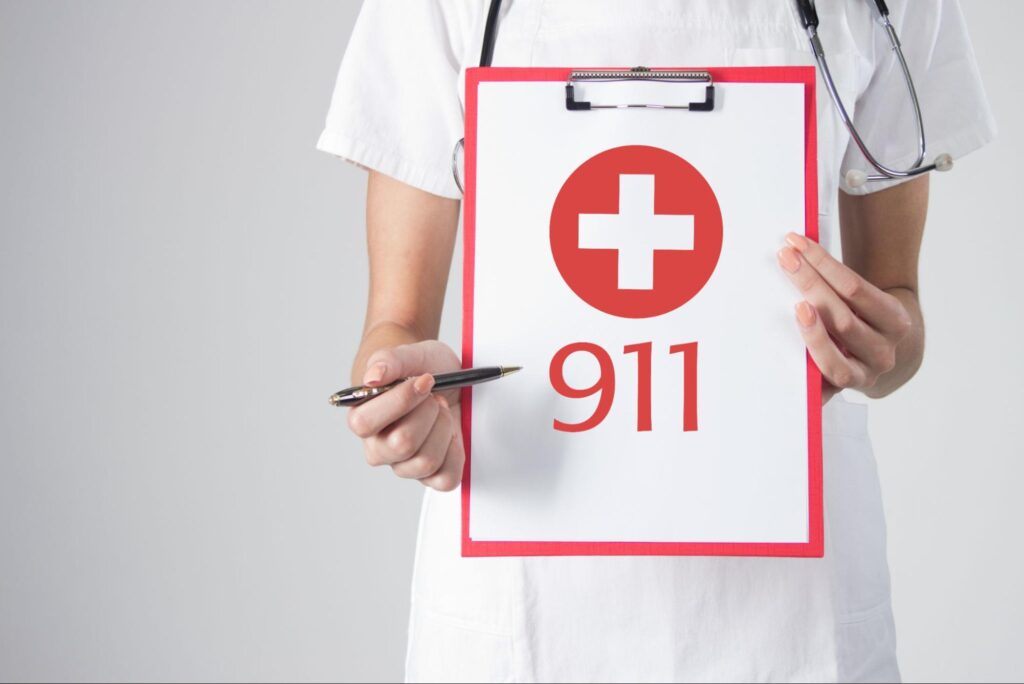
Accidents happen when you least expect them, but what you do afterward can have serious consequences, especially in Georgia. If you think skipping the paperwork is no big deal, think again.
Failure to report an accident in Georgia can lead to hefty fines, license suspension, and even criminal charges. Understanding your legal responsibilities is important, whether it’s a minor fender bender or a major collision.
Don’t let a momentary lapse cost you your driving privileges or more. For more insight on how to skip these consequences, let the experienced assist you.
Understanding Georgia’s Accident Reporting Laws
The Legal Obligation to Report an Accident
In Georgia, the law mandates that individuals involved in an accident, especially those resulting in injury or property damage, have a duty to report the incident. This is essential for ensuring all parties involved can secure the necessary support and that the situation is properly documented by authorities.
Failure to report an accident, as Georgia law requires, can lead to serious legal repercussions. The law promotes driver responsibility to maintain safety and accountability, making understanding these obligations crucial for Georgia residents.
For instance, if a driver fails to report an accident and is later found to be at fault, they may face increased liability and challenges in securing insurance coverage. Moreover, the police report generated from an accident can serve as vital evidence in any subsequent legal proceedings, making compliance with reporting laws even more critical.
Time Frame for Reporting an Accident in Georgia
Georgia law specifies that accidents must be reported within a reasonable time frame. While the definition of “reasonable” can vary based on circumstances, it generally means that individuals should act swiftly, typically within a few hours. Reporting promptly is vital, as delays can complicate investigations and potentially harm your case.
Additionally, specific reporting requirements may be tied to various situations, including whether injuries occurred or if damage exceeds a certain monetary limit. Adhering to these timelines can help prevent further complications.
For example, if an accident involves serious injuries or fatalities, reporting it to law enforcement is not only a legal obligation but also crucial for ensuring that medical assistance is dispatched immediately.
Furthermore, in cases where the damage is significant, the failure to report an accident, as Georgia law mandates, can lead to disputes with insurance companies, as they may deny claims due to the absence of a formal report.
Understanding these nuances is crucial, as it empowers drivers to navigate the complexities of accident reporting effectively and avoid unnecessary complications.
Consequences of Not Reporting an Accident
Legal Penalties and Fines
Failing to report an accident in Georgia can result in significant legal penalties. Depending on the circumstances, individuals may face fines, points on their driving record, or even misdemeanor charges. These penalties are intended to encourage responsible driving and prompt reporting.
The financial impact of these penalties can add up over time, potentially affecting one’s ability to obtain insurance and leading to temporary restrictions on driving privileges. Understanding the full implications of neglecting the duty to report an accident is crucial.
Moreover, the legal repercussions can extend beyond immediate fines; repeat offenders may face more severe consequences, including increased scrutiny from law enforcement and a heightened likelihood of being involved in future accidents due to a lack of accountability.
Impact on Insurance Rates
In addition to legal ramifications, not reporting an accident may have severe effects on insurance premiums. Insurance companies often view failure to report an accident as a red flag, which could lead to increased rates or even denial of coverage.
In the eyes of insurers, a lack of transparency can indicate a higher risk, which inevitably affects your financial obligations.
Furthermore, should a claim arise from an unreported accident, the insurer may contest the provision of coverage. This could leave individuals financially vulnerable and facing out-of-pocket expenses for damages or injuries sustained during the accident.
Additionally, the long-term effects on one’s insurance history can be detrimental; the failure to report an accident Georgia law mandates can create a record of unreported incidents that insurers may use to justify higher premiums or more stringent policy conditions.
This creates a cycle of financial strain that can be difficult to escape, especially for those who rely on their vehicles for daily commuting or work-related travel.
The Role of Law Enforcement in Accident Reporting
Police Involvement in Accident Reporting
Law enforcement plays a critical role in accident reporting in Georgia. Officers are often dispatched to the scene of an accident to assess the situation, offer assistance, and document essential details.
This documentation can include witness statements, photographs, and necessary incident reports, which are crucial to any legal proceedings that may follow.
The presence of law enforcement not only helps to ensure that the scene is safe and secure but also provides a sense of order amidst the chaos that often accompanies accidents.
Officers are trained to handle these situations with professionalism and care, ensuring that all parties receive the support they need while maintaining the integrity of the investigation.
When an officer arrives at the scene, it’s vital for all involved parties to provide accurate information. Providing false information or failing to disclose certain facts can exacerbate the legal consequences and complicate the reporting process.
Furthermore, law enforcement may also check for any outstanding warrants or violations related to the individuals involved, which can lead to additional legal ramifications. The thoroughness of the officer’s report can significantly influence insurance claims and potential litigation, making it imperative that all information is conveyed truthfully and completely.
How Law Enforcement Handles Unreported Accidents
When accidents go unreported, law enforcement may eventually become involved through other means, such as citizen reports or subsequent investigations. Officers will attempt to reconstruct the incident’s circumstances, including interviewing witnesses or reviewing any available surveillance footage.
This reconstruction process can be quite complex, as it requires piecing together various accounts and physical evidence to form a clear picture of what transpired. Forensic experts may be called upon to analyze the scene, providing insights that can help clarify the events leading up to the accident.
In these cases, officers can still create an incident report, but the lack of initial reporting may reflect poorly on those involved. Consequently, individuals may find themselves facing additional scrutiny or complications as investigations unfold.
The absence of a timely report can lead to difficulties in establishing liability, as memories fade and evidence may be lost over time.
Moreover, law enforcement may need to rely heavily on circumstantial evidence, which can complicate the determination of fault and impact the outcome of any legal proceedings that follow.
This highlights the importance of promptly reporting accidents to ensure that all relevant details are captured while they are still fresh in the minds of those involved.
Steps to Take After an Accident in Georgia

Immediate Actions Post-Accident
Your immediate actions are critical when involved in an accident. Begin by ensuring everyone’s safety, moving to a secure location if possible, and checking for injuries. Calling 911 should be one of your first steps, especially if injuries or significant property damage occur.
Once authorities arrive, gather information such as names, contact details, insurance details, and license plate numbers from all parties involved. Document the scene through photographs and take notes regarding the accident’s specifics. This information will be essential for law enforcement and your insurance company.
In addition to collecting details from other drivers, it’s also wise to speak with any witnesses who may have observed the incident. Their accounts can provide valuable context and corroborate your version of events.
Ensure to get their contact information as well, as they may be called upon later to provide statements to your insurance company or in court if necessary. The more comprehensive your documentation, the stronger your case will be when navigating the aftermath of the accident.
Reporting the Accident to Authorities
Once the scene is safe and you have gathered pertinent information, it’s essential to report the accident to law enforcement if it meets the criteria set by Georgia law. Filing a report fulfills your legal obligations and serves as a vital resource should any disputes arise later.
Ensure you lead the officer to important details about the accident as accurately as possible. Once the report is created, obtain a copy for your records and for your insurance claims.
It’s also beneficial to familiarize yourself with the specific requirements for accident reporting in Georgia, as certain thresholds, such as injury severity or property damage amount, dictate whether a report is necessary.
Understanding these nuances can help you navigate the legal landscape more effectively and avoid any potential pitfalls that could arise from failing to report an accident when required.
Defending Against Failure to Report Accusations
Legal Defenses and Arguments
Various legal defenses may be available if you are accused of failing to report an accident. An attorney can help construct your defense based on the specifics of your case, including any lack of knowledge concerning the reporting requirements or evidence suggesting you were not directly involved in the accident.
Demonstrating that you acted in good faith, even if an accident went unreported, may also be viable. Each case is unique; therefore, seeking professional legal guidance tailored to your circumstances is essential.
In some situations, you might argue that the accident was minor and did not meet the threshold for mandatory reporting, which can often depend on the extent of damages or injuries involved.
Additionally, if you were unaware of the accident due to circumstances beyond your control, such as being incapacitated or distracted, this could further bolster your defense.
Seeking Legal Assistance in Georgia
Consulting with an experienced attorney can provide indispensable support if you are facing allegations related to an unreported accident. Legal experts can clarify your rights and responsibilities under Georgia law and help navigate the complexities of the legal system.
They can also assess the evidence against you, including witness statements and police reports, to identify any inconsistencies or weaknesses in the prosecution’s case. Finding a reputable attorney specializing in traffic laws or personal injury may also enhance your defense strategy.
They can guide you in compiling necessary documentation, understanding potential repercussions, and representing you in court if needed. Furthermore, an attorney can help you explore alternative resolutions, such as plea bargains or mediation, which might mitigate the consequences of the accusation.
Engaging with legal professionals who have a deep understanding of local laws and precedents can significantly influence the outcome of your case, ensuring that you are well-prepared to defend your rights effectively.
Conclusion
Understanding the penalties for failing to report an accident in Georgia is paramount for all motorists. By being aware of legal obligations, the ramifications of neglecting them, and the steps to take immediately following an accident, drivers can protect themselves from detrimental legal and insurance consequences.
Moreover, enlisting legal help when necessary can ensure that individuals are adequately defended against any accusations that may arise from such incidents.
For personalized advice and support, call us today for a free consultation at 888-559-7940, available 24/7. Alternatively, you can reach us through Howe Law.
Related Articles


























































